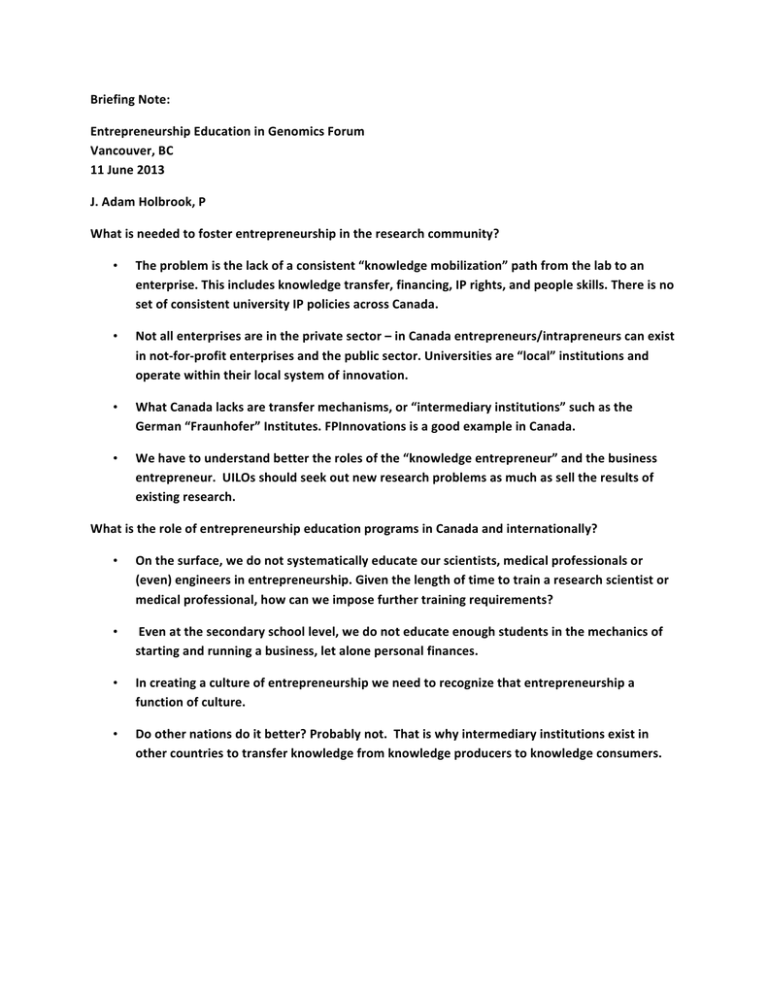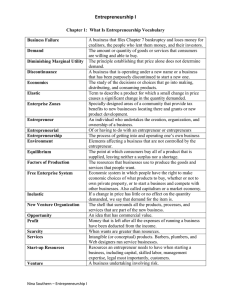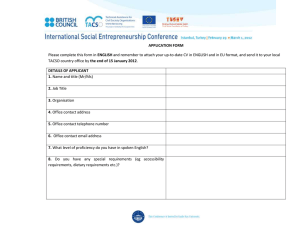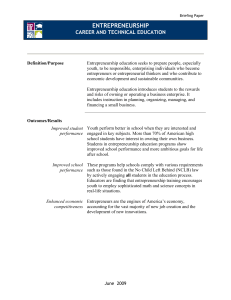Document 10685101
advertisement

Briefing Note: Entrepreneurship Education in Genomics Forum Vancouver, BC 11 June 2013 J. Adam Holbrook, P What is needed to foster entrepreneurship in the research community? • The problem is the lack of a consistent “knowledge mobilization” path from the lab to an enterprise. This includes knowledge transfer, financing, IP rights, and people skills. There is no set of consistent university IP policies across Canada. • Not all enterprises are in the private sector – in Canada entrepreneurs/intrapreneurs can exist in not-­‐for-­‐profit enterprises and the public sector. Universities are “local” institutions and operate within their local system of innovation. • What Canada lacks are transfer mechanisms, or “intermediary institutions” such as the German “Fraunhofer” Institutes. FPInnovations is a good example in Canada. • We have to understand better the roles of the “knowledge entrepreneur” and the business entrepreneur. UILOs should seek out new research problems as much as sell the results of existing research. What is the role of entrepreneurship education programs in Canada and internationally? • On the surface, we do not systematically educate our scientists, medical professionals or (even) engineers in entrepreneurship. Given the length of time to train a research scientist or medical professional, how can we impose further training requirements? • Even at the secondary school level, we do not educate enough students in the mechanics of starting and running a business, let alone personal finances. • In creating a culture of entrepreneurship we need to recognize that entrepreneurship a function of culture. • Do other nations do it better? Probably not. That is why intermediary institutions exist in other countries to transfer knowledge from knowledge producers to knowledge consumers.











